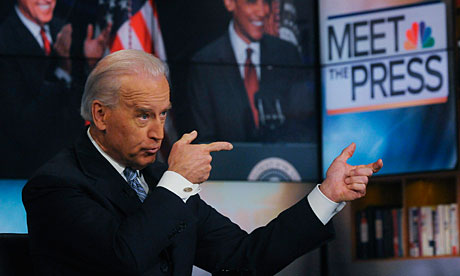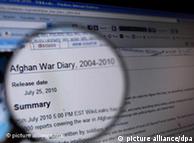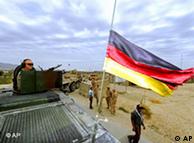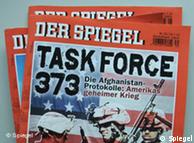

US diplomats predicted the Coalition Government would be unstable and considered Gordon Brown to be weak and unpredictable, secret documents are set to show.

Berlin plays down Wikileaks' Afghanistan files but plans investigation
0 comentarii Publicat de Mr. Miaghy la 01:01The documents also reveal Israel's anxiety regarding its nuclear monopoly in the region, its willingness to attack Iran independently, and its untiring attempts to influence US policy.

Mr Castro has since made an apparent recovery and earlier this year returned to making speeches and appearing in public, though he has not taken back the reins of power from his brother Raul.
According to the dispatches, released by the whistblowers' Web site Wikileaks, senior Serbian officials have been indirectly pushing for the partition of Kosovo, claiming that while they may never again govern Kosovo, the government in Pristina will never gain full control of the territory.
According to Ratkovic, the US and the EU were considering "military intervention" to forcibly incorporate northern Kosovo.
Ratkovic, who laid out a scenario tantamount to partition to Robert Cooper, Britain's EU troubleshooter on the Balkans and Iran, explicitly told Cooper that "while Belgrade would need to accept that it would not govern Kosovo again, Kosovo would have to come to the realization that it would not effectively be able to extend its governance north of the Ibar river."
Cables sent from the US embassy in Belgrade in 2006 reveal American impatience with Serbia's very limited efforts to track down former Bosnian Serb military leader Ratko Mladic, wanted by the UN war crimes tribunal in the Hague for war crimes.
"Due primarily to the resistance of Prime Minister Kostunica himself, the government has not carried out in full a single one of our recommendations."
The situation does appear to improve however, after the new Serbian government led by President Tadic's Democratic Party took office in 2008. A cable from May 2009 says that Serbia is doing as much as it can to locate and arrest Mladic.
"The current government clearly wants to find Mladic, a prerequisite for moving ahead with EU accession," the dispatch reads, although a Spanish diplomat whose remarks were conveyed in a 2008 cable didn't agree: “Serbia is not cooperating at all with the International Criminal Tribunal for the former Yugoslavia and knows perfectly well where Mladic is."
WikiLeaks: NATO's secret plans to defend Baltic revealed
0 comentarii Publicat de Mr. Miaghy la 08:04Julian Assange like a hi-tech terrorist, says Joe Biden
0 comentarii Publicat de Mr. Miaghy la 02:37

Few of the 910 cables on Wikileaks went from Dublin’s U.S. Embassy
0 comentarii Publicat de Mr. Miaghy la 02:34"In a campaign that had some declaring the start of a “cyberwar,” hundreds of Internet activists mounted retaliatory attacks on Wednesday on the Web sites of multinational companies and other organizations they deemed hostile to the WikiLeaks antisecrecy organization and its jailed founder, Julian Assange."
It all started early December when the controversial site WikiLeaks site was dropped from service due to what the company responsible said was "many attacks" by those who opposed the existence of WikiLeaks. Not content to let it be, opposition grew around the internet to what was seen as internet censorship. WikiLeaks supporters rallied and the site has now been mirroredon over 76 servers across the planet. But that wasn't the end of it.
Internet giant Amazon refused WikiLeaks webspace on it's server. ThenPostFinance, a Swiss bank, announced that it has closed a bank accountowned by Jullian Assange. With the U.S. Government apparently getting involved, PayPal joined in and blocked the transfer of funds to WikiLeaks. Next, both Mastercard and Visa announced that they too would suspend payments to the WikiLeaks organization.
For many, that was the last straw. There would be a response. And a few days ago, Operation Payback began. It's been a shit-storm unlike anything I've ever seen.
It started small with only an estimated 40 people in an IRC chat room. However, as of an hour ago, there were over 4,000 people firing DDOS (denial of service attacks) at chosen websites. DDOS attacks overload the servers hosting the websites and crash them. The result of which is an error message when anyone around the world attempts to load up that site. Some of the attackers are part of a cyber-group who called themselves Anonymous. They even have a Twitter account updating folks on the progress of their attacks. (Their first account was closed, so they remade another one).
"Anonymous is supporting WikiLeaks not because we agree or disagree with the data that is being sent out, but we disagree with any from of censorship on the internet. If we let WikiLeaks fall without a fight then governments will think they can just take down any sites they wish or disagree with."
The attacks have been effective. First the Post Finance bank site was shut down. Customers were unable to do any banking via the Net. Then both theMastercard and the Visa websites fell. Paypal was also attacked which resulted in the company's blog being shut down for a time. It has since been restored. Government officials have also been targets of the attacks. American Senator Joseph Lieberman’s .gov website was taken down for 12 minutes (the first .gov site to be attacked). So was Sarah Palin's site.
Time magazine published an article that is making rounds this morning. Their view? WikiLeaks is winning the information war. And they should know. They have been ALL OVER this story. Just look at the amount of material they've published.
In the middle of all this, the WikiLeaks organization continues to publish material. Take the news that broke today, for instance, where oil giant Shell aparently boasted that they had infiltrated the Government of Nigeria. When an oil company has dominance over an entire government and its people... Well... some people feel that this information is on a need-to-know basis and that the entire world needs to know about it.
You might think that these DDOS attacks are only minor inconviniences and really have no impact. But one needs to consider the risk of a growing number of web-saavy people who are increasingly organized and angry at what they see as "web-censership" and "dictatorship government!". An attack on PayPal for instance has a very real impact. If the site gets taken down, if people and businessess are unable to log on and conduct business, then that is a very real financial impact no matter where in the world you are.
Postări mai noi Postări mai vechi Pagina de pornire




















